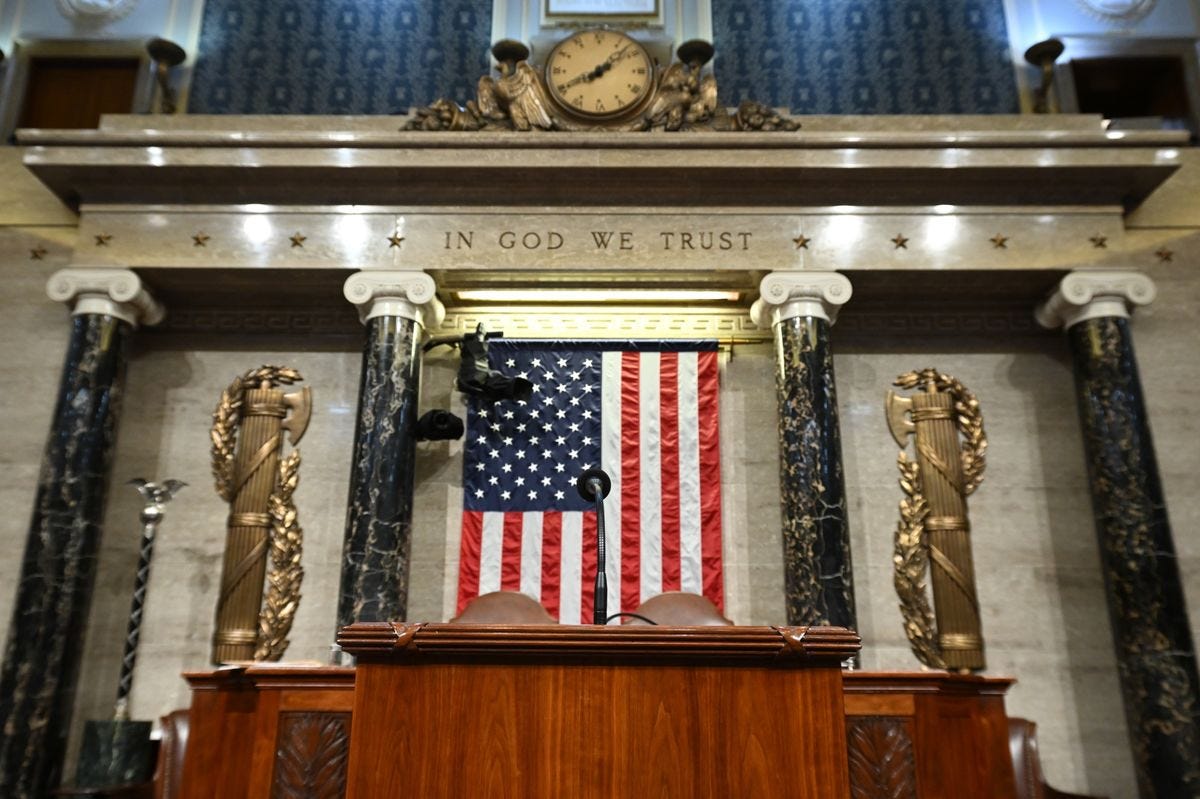The Theory and Meaning of America, Part 5
The Issue of the Source of American Sovereignty-A Summary
This series, in the context of America’s founding and history, is examining a subject I call, the Theory and Meaning of America. To summarize the series so far, we have learned that the treaty which ended the American Revolutionary War, one known as the Treaty of Paris of 1783, lists “both countries” agreeing to its terms, subjecting themselves to the authority of the "most holy and undivided Trinity." So in that respect, it is conclusive to assume that both of these parties, Great Britain and specifically the United States of America, as they existed in 1783, were nations, under the authority of God of the Bible including the New Testament. If that were not true, then the sitting congress of the United States, representing each citizen of every state, could not have ratified that treaty as it was written. And if that might be the case, then officially, the American revolutionary war never really concluded.
But in the succeeding segments of this series we have learned that there is a major question posed within the community of contemporary United States Constitutional Law scholars. That question is whether the nation whose representatives signed that treaty in 1783, and whose sitting congress ratified the same, was in reality a nation in the first place, but rather a “treaty regime” at that time, and whether the nation known as the "United States of America," living under the US Constitution ratified in 1789, is truly that same nation, or organization, that agreed to the Treaty of Paris of 1783, and whether as a result the nation of today, in essence, "rebooted" its sovereignty upon ratifying the Constitution in 1789, and for that reason became an entirely different nation, one which owes its sovereignty to a completely different set of reasons than any nation, or organization, or regime which may have existed, attached same name prior to that time. This question is to consider whether as a result of the ratification of the Constitution, a brand new nation sprang into existence, which is not beholden to the Treaty of Paris of 1783, nor beholden to any agreements previously ratified among the states, states which prior to 1789, agreed among themselves to be known collectively as the "United States of America." (I know these are long sentences.)
The Issue Before Us
Here is the issue, stated another way:
If:
the United States of America, agreed by all as a sovereign nation today, (A) is the same nation that came into being under the Declaration of Independence in 1776, it’s sovereignty thereby dependent upon the reasons cited and agreed in that document, and (B) subsequently agreed to form a "perpetual union" of states under the Articles of Confederation and Perpetual Union, ratified in 1781, and (C) also agreed to the terms of the Treaty of Paris of 1783, signifying that agreement not only by the signatures of the American representatives in Paris, but also the treaty’s subsequent ratification by every state, then regardless of any terms written since into the US Constitution, including amendments to the same,
then:
the conditions which existed and which underwrote the authority of the sitting congress to construct and ratify that new Constitution, amendments, etc. are the same conditions which authorize that agreement today. And if that is the case, then one condition which still authorizes the Constitution today is the condition that the "United States of America" remains a nation under the authority of the "most holy and undivided Trinity." So if America (meaning the United States of America) today, is the same America which has existed since 1776, and therefore since 1783, then in that respect, America is a a nation which owes its sovereign authority to an endowment from God, He being God of the Bible and New Testament.
However,
if:
the facts demonstrate that America is no longer the same "America" which existed prior to the Constitution's ratification, and instead came into being as an entirely new nation under the terms of that document,
then:
the present United States of America owes it's sovereignty only to that which maybe implied between and among parties who agree to abide by a certain contract, that contract being the US Constitution, a contract instituted and agreed by the duly-authorized representatives of the states, representing the individuals cited within that document's terms as, "We the people of the United States." If that might be the case, that the American sovereignty arises purely out of agreement among men, rather than endowment from God, then America is a republic whose sovereign authority sprang from certain democratic efforts exerted by its people, resulting in a contract agreed among those same people, regardless of the circumstances and conditions that brought those people to that point.
Simply put, is America a nation whose authority comes to it as ordained by God in 1776, or is America a nation whose authority comes to it as a result of a contract among men in 1789?
The issue of this series so far being fairly summarized above, in the next installment we will begin to uncover which proposal is true, and which is false. So please be looking for the next installment, which will be coming online soon...
Hank




